LIHUE — Trailing by two runs in the seventh inning, the Lihue AJA made a concerted effort to come back, scoring a run on an RBI single.
But the tying run was squashed by a rundown between the Kapaa third baseman and pitcher, leaving Lihue chasing a run to tie.
Kapaa AJA came back with a run in the eighth inning and shut down Lihue for the 6-4 final to mark the start of ceremonies opening the 90th year of Americans of Japanese Ancestry baseball at Vidinha Stadium.
Lihue, led by coach Curtis Matsumura, and Kapaa, with Ikaika Pezario as its coach, are two of the five teams that make up the AJA league that is being led by Kauai AJA president Tom Shigemoto. Other participating teams include Kalaheo with Zoom Bukoski as its coach, Hanapepe with Leroy Nonaka as its coach, and Makaweli, the reigning Kauai AJA champions, with Leighton Otoman coaching.
“May all the AJA members who take part in this league gain valuable experiences in sportsmanship and promote physical development and recreation for themselves,” said Rev. Tomo Hojo of the West Kauai Hongwanji Mission who broke away from his church’s mochi-making that is a fundraiser steeped in Japanese tradition. “May this activity bring about better understanding among the AJA members and create a stronger spirit of their teams.”
The roots of AJA baseball are planted deep to the plantation days era when the Japanese immigrants housed in plantation camps formed teams to compete with as a recreational outlet from the work in the fields.
Similar leagues formed by immigrant workers from other countries followed suit, resulting in other ethnic leagues. Today, the AJA baseball opens its 90th year of play (there was a period of no baseball when World War II broke out), being joined by AJA leagues on Oahu, Maui, and the Big Island.
Mayor Derek S.K. Kawakami led a moment of silence in rememberance of Glenn Mickens and his “indispensable” contributions to the sport of baseball.
Mickens, whose professional baseball career included a stint with the Brooklyn Dodgers, died in July at the age of 88.
“American and Japanese history is woven into this sport,” Kawakami said. “The league was born under adverse conditions with players pledging their lives to our country. There is so much more than baseball riding on the shoulders of you players. The family support you receive keeps this system alive.”
Kawakami joined Kauai AJA President Tom Shigemoto in distributing league honors, including the 2019 championship team, Makaweli AJA, and the league’s Most Valuable Player award that was announced as Travis Shigeta of the Makaweli team.
In addition to Shigemoto, the Kauai AJA leadership includes First Vice President Brian Yamase, Second Vice President Mel Nishihara, Treasurer Russell Maeda, Secretary Gerald Ako, and League Manager Nishihara.
“Shigemoto has been affiliated with AJA for nearly half of its existence,” Ako said. “Forty-eight years. He started as a player with Lihue, and over the years, has stepped into administering the league. He was going to make his announcement, six years ago, but the speakers didn’t work.”
Shigemoto thanked the mayor and the county for its support, the most recent being the renovations at Vidinha Stadium that included the installation of lights enabling night games, new dugouts and other field enhancements.
“There is no individual greater than the team,” Shigemoto said. “I have been lucky to have a great support cast, many of whom are looking down on us, today. But it’s time, and I will serve this year for the final time. I’m happy to see so many young men because someone will step up.”
The Kauai AJA season continues through March 29 when the Maui AJA will host the state tournament.
•••
Dennis Fujimoto, staff writer and photographer, can be reached at 245-0453 or dfujimoto@thegardenisland.com.


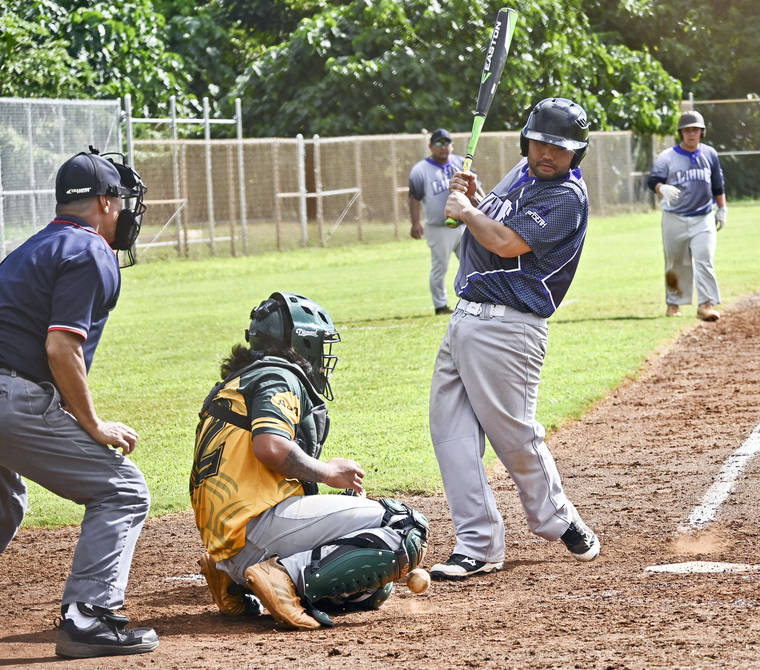
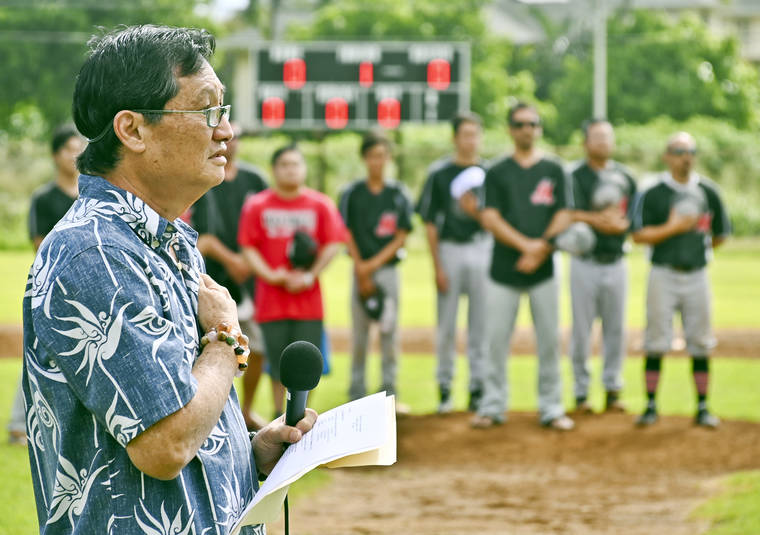
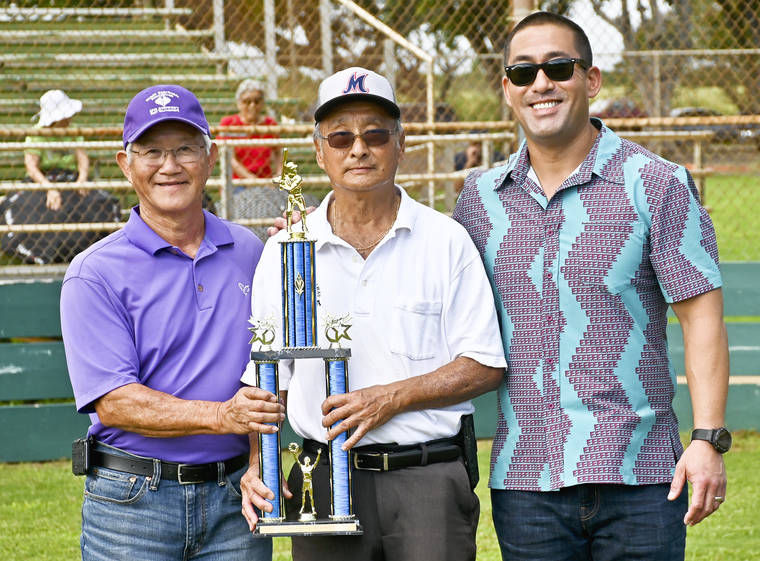
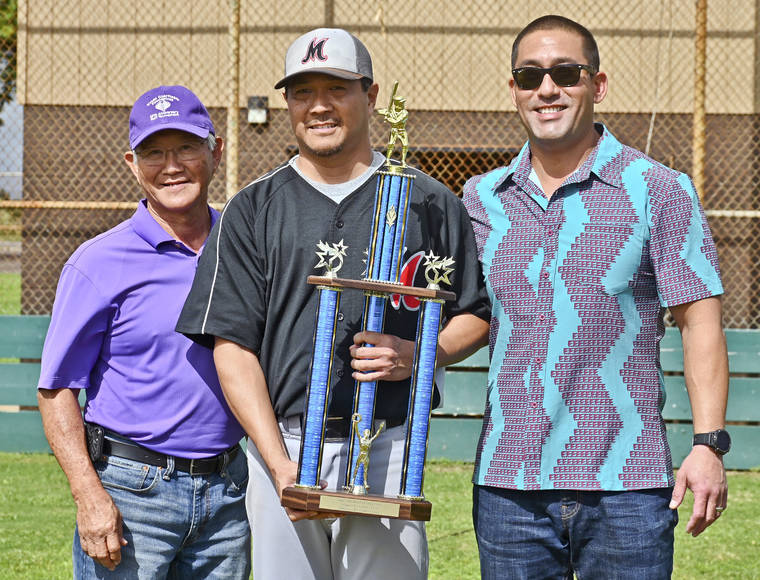
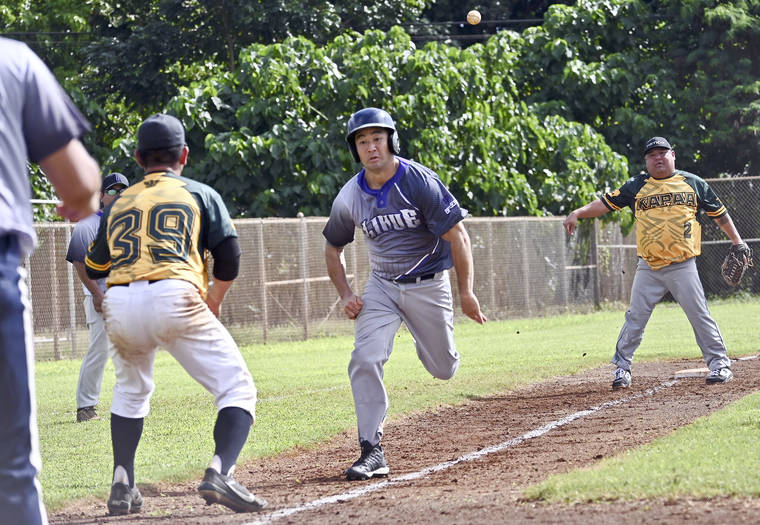
Leroy Nonanka is from Waimea High School. He is one year younger than Ross Kagawa. They played baseball together in high school. So much for tattle tale. I don’t think Ross Kagawa is worth anything to the community on the public seat. Include Brun.